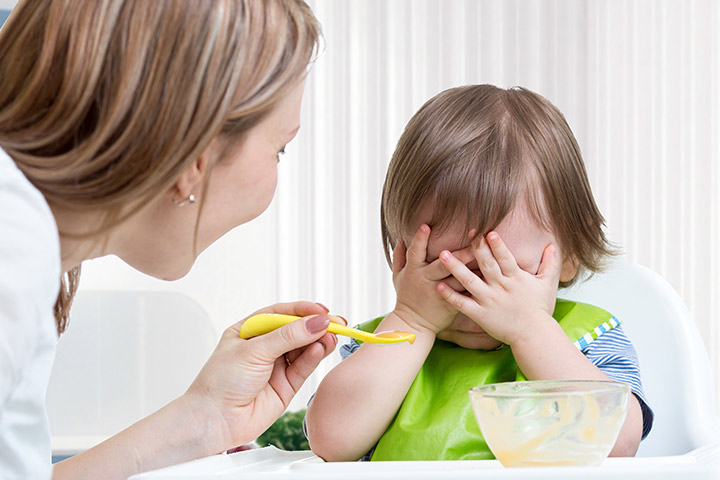Ensuring that your little one eats can be an uphill task. At times you must have seen your toddler push away foods that used to be favorites, turn up his nose at anything green and at other times absolutely refuse to try anything new. And you wonder if he can really survive on what seems like a handful of food each day. However, the cardinal truth is that your child will eat something only when he/she is hungry. Moreover, in a child’s growth cycle, phases of low appetite are completely normal.
But when your toddler does not eat adequately at the designated time can be a grave cause of concern, if there are following signs along with loss of appetite :
- Irritability
- Cough
- Not desirous of eating her/his favorite food item(s)
- Vomiting upon eating
- Excess salivation.
If this is the case, then an underlying issue may also cause reduced appetite. Some of the factors resulting in reduced appetite in kids are as follows:
- Growth : A child’s calorific needs are the highest until the first six months of her/his life. Thereafter, the energy requirements begin to slowly yet progressively reduce over time.
- Increased Body Temperature of the Child : When the child feels too hot then the sweat and irritability makes it difficult for her/him to eat.
- Teething : The teething process is painful and irritating for your little one. So, when your child begins to teeth around seven month, she/he may not want to eat due to the teeth tearing through the gums, sore and inflamed gums or even a runny tummy.
- Sore Throat : If your li’l one has a sore throat due to cold or simply due to screaming too much, it becomes increasingly difficult for her/him to swallow food. This may prevent your child from eating.
- Type of Food : Children are famous for being choosy about what they want to eat. Sometimes, if you serve them something they particularly don’t like, they may lose their hunger. Also, foods such as whole grains take a lot of time to digest which keeps your child’s tummy full and consequently she/he may not feel hungry even after a substantial gap.
- Parasite and Worm Infestation : Playing in the sand or ingesting sand makes your child more susceptible to parasites and worms. This infection can cause vomiting, diarrhea and appetite loss.
- Poor Health : If your child is unwell, she/he would not want to take food and can reduce appetite. Conditions such as fever, cough & cold, upset stomach, Bacterial and viral infections, can change the way your child’s body functions and she/he can lose appetite. If your baby has a low iron content or is anemic, she/he may suffer from loss of appetite
- Excess Fluid Intake : If your li’l one has drunk a lot of fluid such as water and juices, then she/he can feel full. Once your child’s tiny belly is filled with formula or mother’s milk, it will not require anything else.
- Anemia : When the body does not have enough iron, a child can develop iron-deficiency anemia. This means the body cells get less oxygen. This causes the child to look pale and feel tired, weak, and irritable. Here are some ways to increase iron in your toddler’s diet.
- Medications : If the child has been prescribed antibiotics recently, these may also lead to a loss in appetite. Before you get worried, try checking with your pediatrician about the medicines.
If your child appears healthy and happy, there is probably no reason to be concerned about a temporary slump in appetite. You can try to make meal times fun for your child. Here are some ways.

